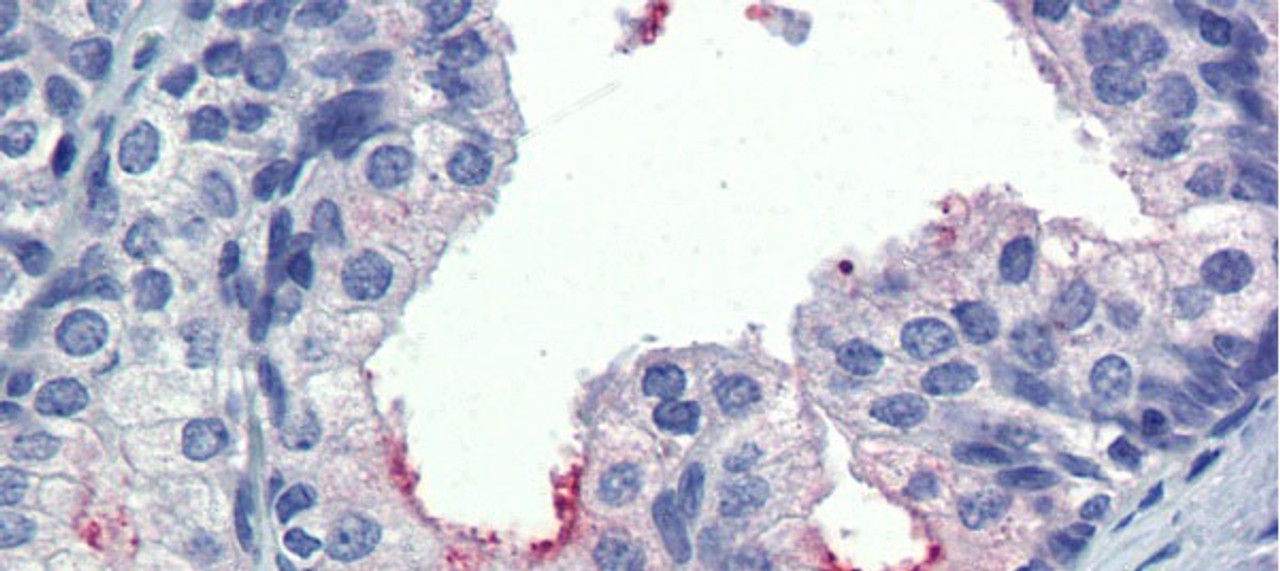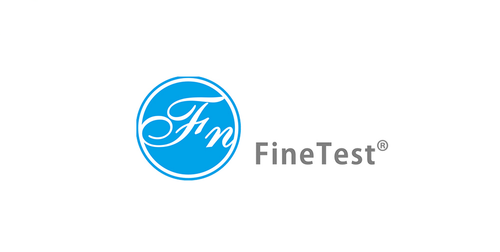Product Description
AMH Antibody | 26-848 | ProSci
Host: Rabbit
Reactivity: Human, Mouse, Rat
Homology: N/A
Immunogen: Antibody produced in rabbits immunized with a synthetic peptide corresponding a region of human AMH.
Research Area: Cancer, Signal Transduction, Growth Factors
Tested Application: E, WB
Application: AMH antibody can be used for detection of AMH by ELISA at 1:62500. AMH antibody can be used for detection of AMH by western blot at 1 μg/mL, and HRP conjugated secondary antibody should be diluted 1:50, 000 - 100, 000.
Specificiy: N/A
Positive Control 1: Cat. No. XBL-10420 - Fetal Small Intestine Tissue Lysate
Positive Control 2: N/A
Positive Control 3: N/A
Positive Control 4: N/A
Positive Control 5: N/A
Positive Control 6: N/A
Molecular Weight: 57 kDa
Validation: N/A
Isoform: N/A
Purification: Antibody is purified by peptide affinity chromatography method.
Clonality: Polyclonal
Clone: N/A
Isotype: N/A
Conjugate: Unconjugated
Physical State: Liquid
Buffer: Purified antibody supplied in 1x PBS buffer with 0.09% (w/v) sodium azide and 2% sucrose.
Concentration: batch dependent
Storage Condition: For short periods of storage (days) store at 4˚C. For longer periods of storage, store AMH antibody at -20˚C. As with any antibody avoid repeat freeze-thaw cycles.
Alternate Name: AMH, MIF, MIS
User Note: Optimal dilutions for each application to be determined by the researcher.
BACKGROUND: Anti-Mullerian hormone is a member of the transforming growth factor-beta gene family which mediates male sexual differentiation. Anti-Mullerian hormone causes the regression of Mullerian ducts which would otherwise differentiate into the uterus and fallopian tubes. Some mutations in the anti-Mullerian hormone result in persistent Mullerian duct syndrome.Anti-Mullerian hormone is a member of the transforming growth factor-beta gene family which mediates male sexual differentiation. Anti-Mullerian hormone causes the regression of Mullerian ducts which would otherwise differentiate into the uterus and fallopian tubes. Some mutations in the anti-Mullerian hormone result in persistent Mullerian duct syndrome. Publication Note: This RefSeq record includes a subset of the publications that are available for this gene. Please see the Entrez Gene record to access additional publications.
 Euro
Euro
 USD
USD
 British Pound
British Pound
 NULL
NULL
















